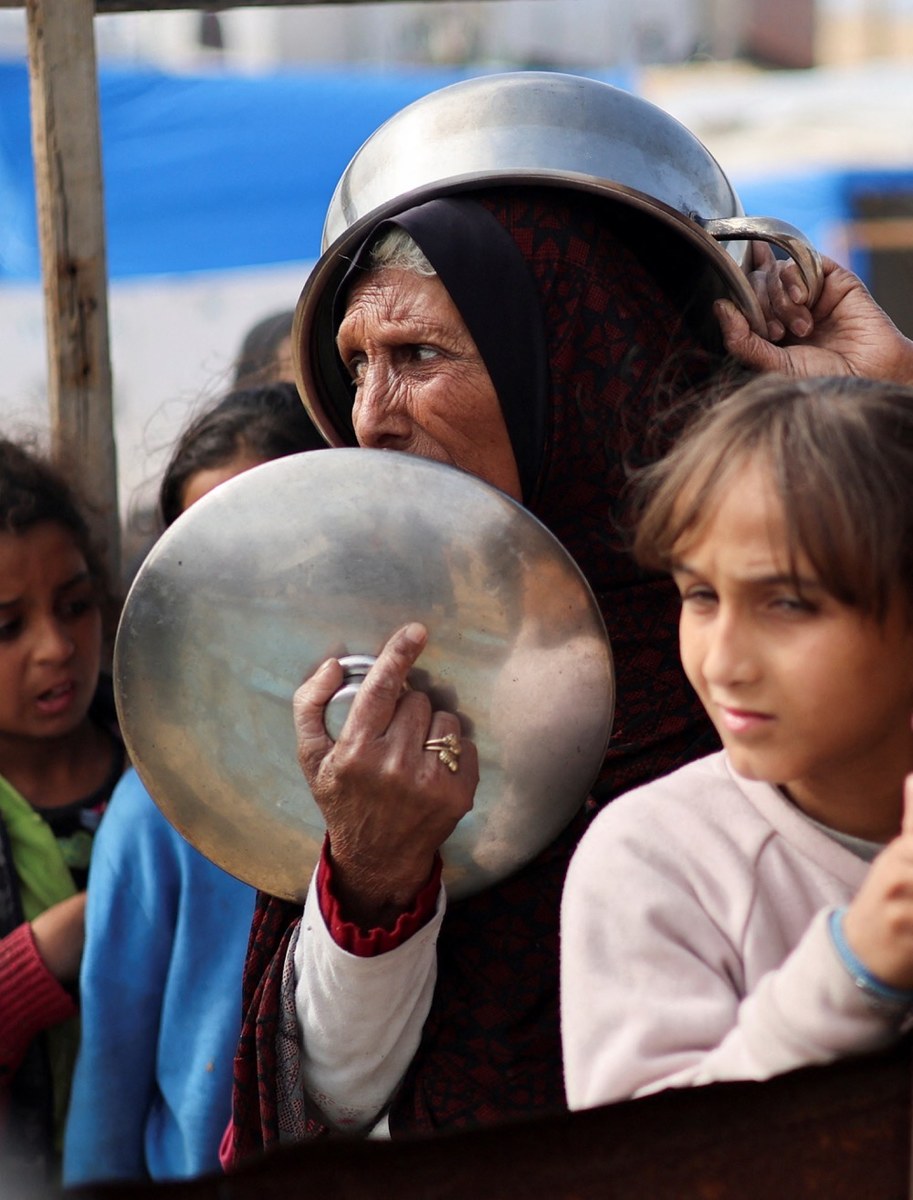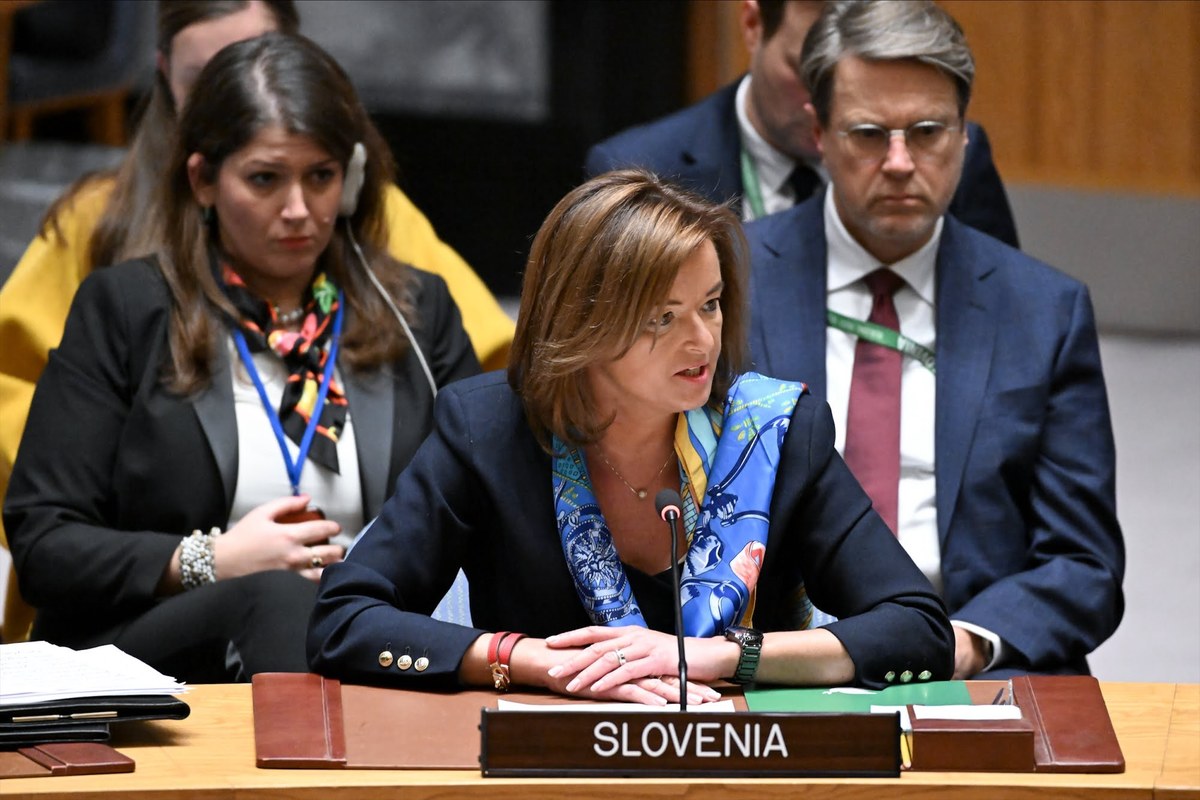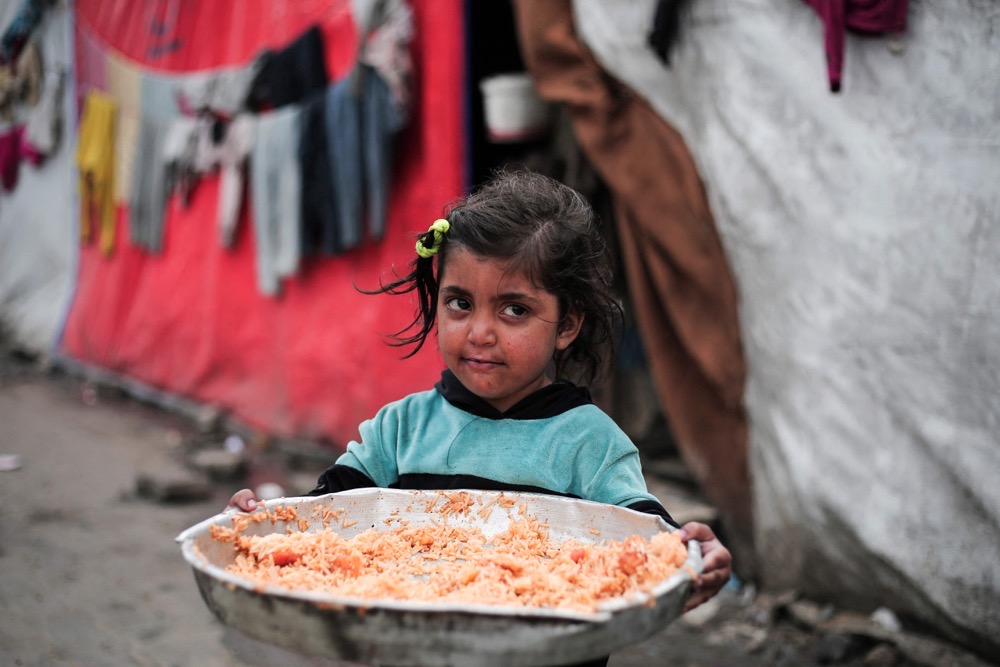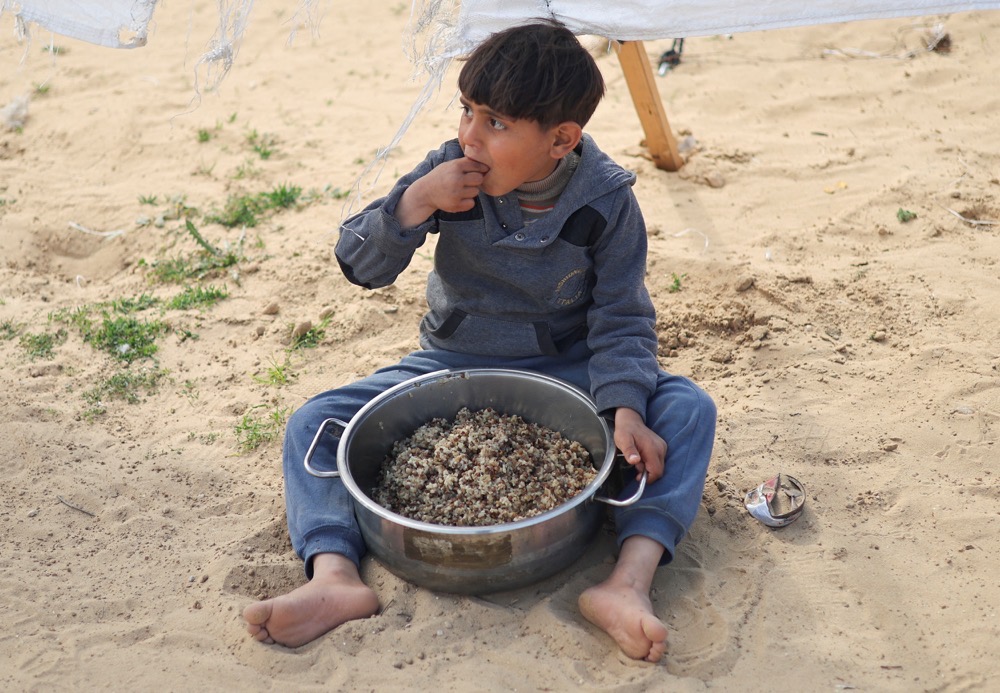NEW YORK CITY: Tanja Fajon, Slovenia’s minister of foreign and European affairs, has expressed deep disappointment at how the US has repeatedly used its veto power at the UN Security Council to block demands for a ceasefire between Israel and Hamas in the Gaza Strip.
On Feb. 20, the US vetoed a resolution calling for an immediate ceasefire in Gaza for the third time. It was the lone vote against the resolution put forward by Algeria. The UK was the sole abstention, with 13 votes in support.
With some 30,000 people killed in Gaza since Israel launched its military offensive last October and some 2 million now at risk of famine, Washington’s continued use of its veto at the security council to prevent censure of Israel has drawn condemnation.
“I fear that the world has failed the test of humanity,” Fajon, whose country is a non-permanent member of the UN Security Council for 2024-2025, told Arab News during an interview in New York.

On Feb. 20, the US vetoed a resolution calling for an immediate ceasefire in Gaza for the third time. (AFP)
“Seeing so many kids without shelter, without food, without schools, no hospitals. We see the unbearably high death toll among civilians, the violations of international humanitarian laws — this is on us all.”
Washington has sought to justify its veto, saying a ceasefire would jeopardize “sensitive” negotiations, led by the US, Qatar and Egypt, to broker an end to the hostilities in Gaza, the release of hostages held by Hamas, and to allow aid to enter the enclave.
Rather than veto resolutions, Fajon said the US should use its influence over Israel to demand a halt to its military operation in Gaza and commit to the establishment of an independent Palestinian state.
“It’s no secret that Americans have leverage on Israel,” she said.
“They really have to do everything that’s possible, first to start serious negotiations with Israel, to stop the violations in Gaza, to ensure a ceasefire, to reach an agreement on the release of hostages and political prisoners and really start working for the two-state solution.
“We are doing our part of the job on the European side. But we need everyone at the table.”

Washington’s continued use of its veto at the security council to prevent censure of Israel has drawn condemnation. (AFP/File)
Fajon fears the worst could still come if Israel follows through with its threat to launch a new ground offensive against Rafah, the last refuge of more than 1.5 million displaced Palestinians.
“I do expect that also in America they are aware of what might happen after the beginning of Ramadan if Israel makes its threats a reality,” she said. “If nothing happens, if a ceasefire is not urgently (implemented), I don’t know how we can move forward.”
Fajon believes that any large-scale operation in Rafah during Ramadan will provoke massive unrest across the Middle East and beyond.
“The anger is growing against Israel,” she said. “And when you have masses of people being frustrated, it’s always difficult to control and ensure peace. So, we are running the risk of a real escalation of violations in the Middle East.”
Slovenia’s stance on the Israeli-Palestinian conflict differs from the EU’s dominant foreign policy position, as mainly represented by large states such as Germany whose defense export approvals to Israel have increased nearly tenfold since Oct. 7, according to Reuters.
Although many European states have called for a ceasefire, they have remained broadly pro-Israel.

Washington has sought to justify its veto, saying a ceasefire would jeopardize “sensitive” negotiations. (AFP)
“We are a small country,” said Fajon. “I wouldn’t say we are either pro-Israel or pro-Palestinians, but we are for peace.”
She said Slovenians have been saddened by the images of suffering coming out of Gaza.
A large portion of the Slovenian electorate, especially the left, are critical of the foreign policy pursued by the US and Israel, which they view as “neo-colonial.”
Many hold a positive attitude toward the societies of the Global South and are broadly pacifist. Many believe the Slovenian government in Ljubljana is well-placed to act as a mediator between Israel and the Palestinians.
Some historians believe these attitudes are a legacy of Slovenia’s time as part of Yugoslavia, which had a tradition of offering support to developing countries, and which was committed to non-alignment during the Cold War, backing neither NATO nor the Warsaw Pact.
Fajon recently hosted the foreign ministers of Egypt and Jordan in Ljubljana. She said both came “with a message of gratitude because we really try to listen and be supportive in efforts to create viable or feasible peace plans.”
With the Arab ministers, Fajon said she discussed her country’s desire to hold a peace conference, bringing the Americans, Israelis and all other stakeholders to the table to find a peaceful solution to the conflict and discuss the recognition of a Palestinian state.
“That also means the well-being and safety of Israelis and Palestinians living side by side,” she said. “We are not there yet. I know there are still open questions on how to ensure stability in Gaza after the war.”

Some 30,000 people have been killed in Gaza since Israel launched its military offensive last October. (AFP)
Slovenia is actively participating in proceedings at the UN’s highest court — the International Court of Justice at The Hague — examining “the ongoing violations by Israel of the right of the Palestinian people to self-determination, from its prolonged occupation, settlement and annexation of the Palestinian territory occupied since 1967,” as well as policies in occupied East Jerusalem and allegations of “discriminatory legislation” against Palestinians.
The motion is seeking an advisory opinion on whether Israel’s activities have violated international law. The motion was requested by the UN General Assembly in 2022, and so pre-dates South Africa’s genocide allegations heard by the court last month.
“This is a very broad spectrum of alleged violations that have been committed in the region for decades and whose horrific consequences are still visible today,” Fajon said last month.
Speaking to Arab News about the case, Fajon said it was about upholding international law.
“We are using our legal arguments, speaking of an occupying force and its illegal wrongdoings on illegally occupied lands,” she said. “Our expert opinion shows clearly that we try and we always follow international law. And that is our main message at The Hague.”
Slovenia has consistently called for the EU to introduce sanctions against both Hamas and extremist Israeli settlers in the West Bank, whose violence “we are following with great concern,” said Fajon.
The country has also joined efforts by Ireland and Spain to reconsider the EU’s cooperation agreement with Israel, which regulates trade relations and is bound by the provision that it respects human rights.
“We are a part of a like-minded group of six or seven countries in the EU that are really pushing hard to achieve a permanent ceasefire,” said Fajon.

Many people in Slovenia hold a positive attitude toward the societies of the Global South and are broadly pacifist. (Supplied)
“Yes, there are divisions inside the EU for different historical reasons. But from our perspective, I believe we are just very consistent in our foreign policy, meaning we respect international law (and) international humanitarian law. And we say that what we are seeing in Gaza are violations of international humanitarian law.”
In South Africa’s genocide case against Israel, the ICJ issued provisional measures ordering Israel to prevent and punish the commission or the incitement to commit genocide, to stop the indiscriminate killing of Palestinians, and immediately enable the provision of humanitarian assistance to Gazans.
“We call on Israel to respect the measures from the ICJ Hague,” said Fajon.
“This is extremely important. We respect the work of international tribunals. And that is our clear call to Israel here. I think we don’t have any double standards. We can tell that to Israel, and we tell it to Russia in its war in Ukraine.”
She said both wars, Ukraine and Gaza, are a direct result of “regimes that don’t respect the UN Charter.”

“We call on Israel to respect the measures from the ICJ Hague,” said Fajon.
“In the case of Russia’s aggression in Ukraine, that’s entering its third year, we fully understand and support Ukrainians’ fight for territorial sovereignty and integrity. Because no one, by force, can take your land away or change internationally recognized borders.
“We run a consistent foreign policy that is based on international law and the UN Charter.”
Slovenia is also one of the leaders of the Mutual Legal Assistance Initiative for the adoption of the Convention on International Cooperation in the Investigation and Prosecution of Genocide, Crimes against Humanity, War Crimes and other International Crimes.
The Ljubljana-The Hague MLA Convention was adopted in May 2023 marking a landmark international treaty aiming to strengthen international legal cooperation to help reduce impunity for perpetrators of crimes and deliver justice to victims of genocide, crimes against humanity and war crimes.
“The Ljubljana-The Hague Convention is an important instrument because it somehow narrows the gap in the legislation (so) that the judiciary systems around the world can faster exchange evidence in persecuting, investigating, and punishing the worst war crimes everywhere,” said Fajon.
“So all those countries that are signing this convention will be in a much better position to move faster with the processes. And I hope that many countries will join in signing it.”

A large portion of the Slovenian electorate, especially the left, are critical of the foreign policy pursued by the US and Israel, which they view as “neo-colonial.” (AFP)
Above all, Fajon believes the international community has a responsibility to help those who desire peace — no matter which side they are on — to access the means to achieve it.
“In every country, be it an aggressive regime that runs a war or be it the victim, but especially in the country that has an aggressive regime, be it in Israel or be it in Russia, there are citizens and people that want to have peace.
“And we have to support these people. That is what I mean when I say we are neither pro-Israel nor pro-Palestinians. I mean exactly our support for these people who want to see peace.
“I think this is our role as politicians.”



















